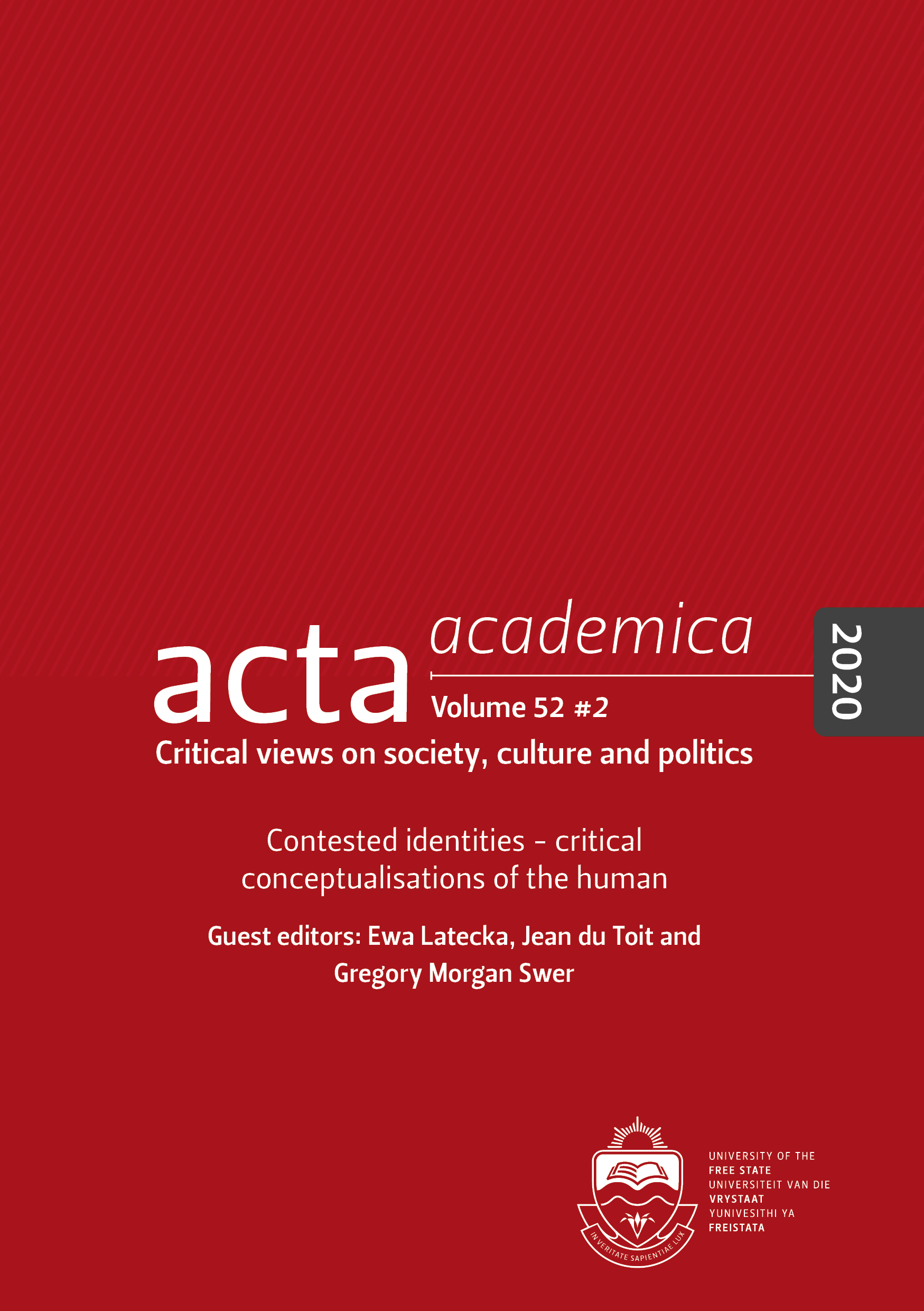On the verge of a nervous breakthrough: Neoliberal subjectivities and precarious resistance in the contemporary South African university
DOI:
https://doi.org/10.18820/24150479/aa52i2/3Keywords:
Higher education, Neoliberalism, Governmentality, Performativity, Guattari, FoucaultAbstract
Academics today labour under conditions of neoliberalism, and universities increasingly operate like businesses where value is determined almost solely in terms of profitability and productivity. “This reduction of the human condition to human capital” (Valero, Mølbjerg Jørgensen, & Brunila, 2019: 144) is an important aspect of both Judith Butler's (2004, 2015) analysis of precarious life, as well as Isabel Lorey's (2016) understanding of precarity and precarization as dimensions of neoliberal governmentality. For Butler in particular, precariousness refers to the vulnerability and interrelatedness of bodies; humans are interdependent and interrelated due to our bodily needs and vulnerabilities. Our bodies are exposed to the possibility of violence, death and pain, and life is not sustainable without security, care and love (Taylor & Underwood, 2019). Some bodies, though, are rendered more precarious and vulnerable than others through processes of social hierarchization, which fuels social inequality. In the neoliberal university context, precarity manifests in managerial regimes, characterized by a paradoxical style of governance “resulting in the government of the social through both material and subjective insecurity” (Pérez & Montoya, 2018: 11). If we frame the university context as a space where bodies are always already precarious, subject to precarity and neoliberal governmentality, it is important to ask what subjectivities are created at contemporary South African universities? A working environment characterized by affects of insufficiency, non-relationality, competitiveness, individualism, isolation and very often anxiety, results in a process of affective subjectivation suitable for neoliberal managerialism to function optimally. The neoliberal machine hence operates with and through precarity (Pérez & Montoya, 2018), creating non-relational subjectivities always on the verge of a collective nervous-breakdown. Against this background we argue that the task of critical theory today is to think beyond diagnostic terms, towards possible forms of resistance that don’t only exist outside of the neoliberal context, but that are made possible by the neoliberal ethos itself. In the words of Tsing (2015: 3):
To live with precarity requires more than railing at those who put us here (although that seems useful too, and I’m not against it). We might look around to notice this strange new world, and we might stretch our imaginations to grasp its contours.
This paper takes the form of a dialogue located in the authors’ experiences at two South African university campuses. Thinking with rather than just against precarity, we experiment performatively, exploring the everyday contradictions and fault lines from where resistant forms of subjectivity might emerge, or from where an undoing of neoliberal governmentality might be imagined. Even if just as the slightly nervous breakthrough.
Downloads
##submission.downloads##
Published
Issue
Section
License
Copyright (c) 2020 Author(s)

This work is licensed under a Creative Commons Attribution 4.0 International License.





